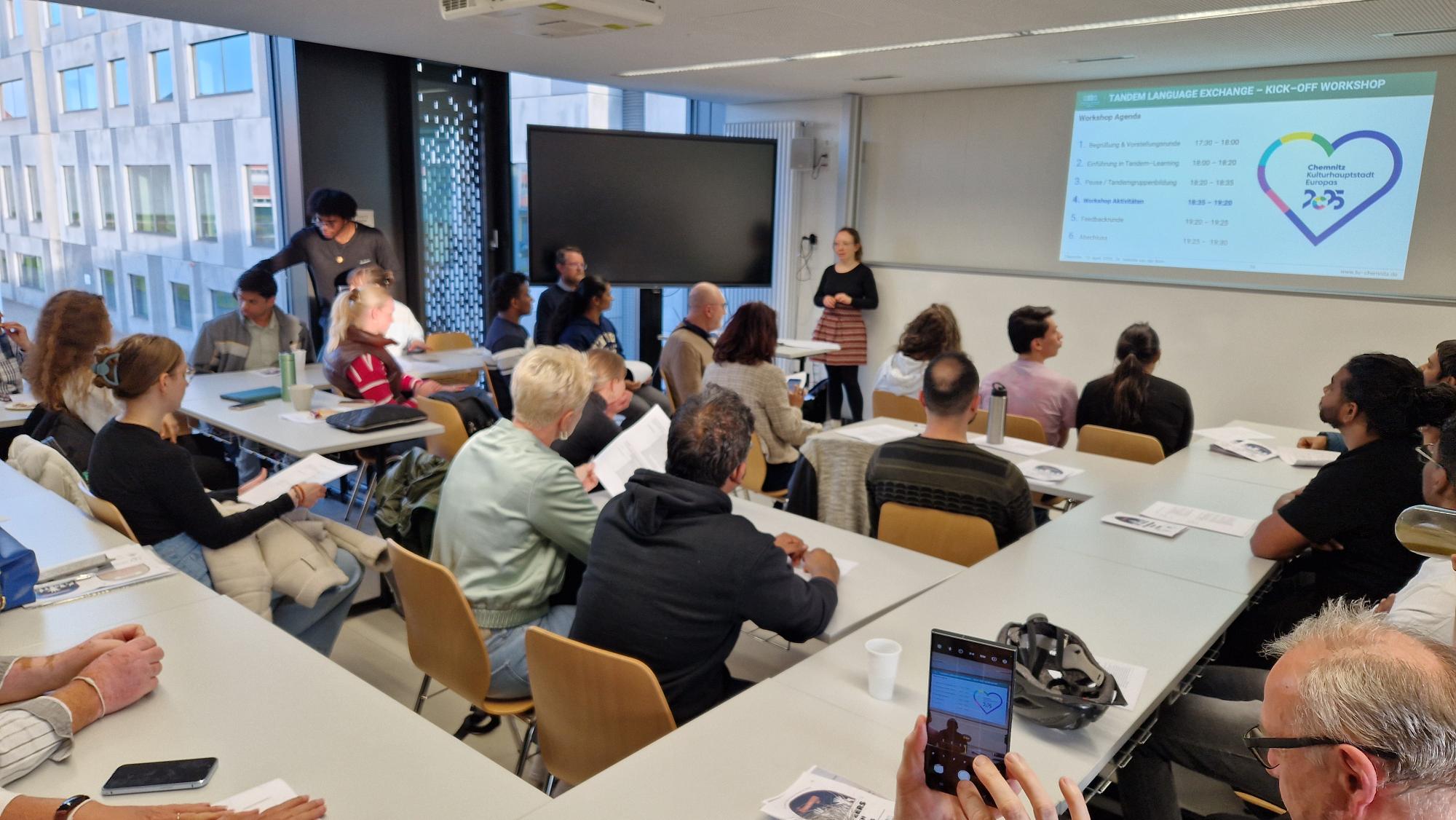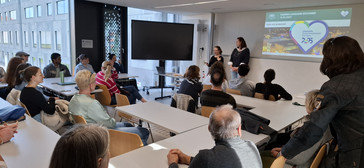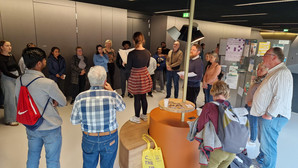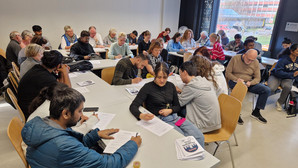Kick-off workshop brings together almost 40 students and volunteers from the European Capital of Culture Chemnitz 2025 across language barriers.
On 10 April 2025, the official kick-off workshop for the Capital of Culture Tandem Programme took place at the Centre for Foreign Languages (ZFS) at Chemnitz University of Technology . The event was supported by Dr Maria Worf, Managing Director of the Centre for Foreign Languages, initiated and coordinated by the English Department, represented by Dr Isabelle van der Bom and Dr Patrick McCafferty, and the Volunteer Programme of the Capital of Culture Chemnitz, represented by Delfina Zdebel (Assistant of the Volunteer Programme) and Anton Schneider (Coordination of the Volunteer Programme). The aim of the event was to connect international and local students as well as Chemnitz residents, who accompany visitors to the European Capital of Culture 2025 events as volunteers, in an innovative linguistic and cultural way.
To kick off the workshop, the participants were given an introduction to the idea of tandem learning. An interactive presentation showed how language learning can be promoted through mutual support in intercultural learning partnerships - with particular reference to the linguistic and cultural challenges that arise in the context of Chemnitz as European Capital of Culture. The focus was not only on acquiring language skills, but also on consciously dealing with cultural diversity and common interests
A specially developed questionnaire was then issued, which not only served as a tool for reflection, but was also used as the basis for the subsequent tandem assignment. The students & volunteers of the Capital of Culture Chemnitz 2025 provided information on their language skills, learning goals, hobbies and cultural interests - with the aim of finding the most suitable tandem partners
In order to get to know each other better, a series of playful matching and familiarisation activities followed. In short three-minute discussion rounds, the participants were able to exchange ideas based on prepared questions (examples) - for example about their favourite places in Chemnitz, cultural events that interest them or their motivation to learn a new language. This quickly created an open, dynamic atmosphere
The interactive phases were followed by the announcement of the tandem pairings, which were put together on the basis of the completed questionnaires and observations made during the familiarisation games. The newly formed tandems will now start an eight-week test phase in which they will meet regularly to exchange languages, define learning goals together and explore the possibilities of intercultural learning
Special thanks go to Mrs Silvia Langhoff, representative of Deutsch-Britische Gesellschaft Chemnitz e.V., for her valuable support of the project.




